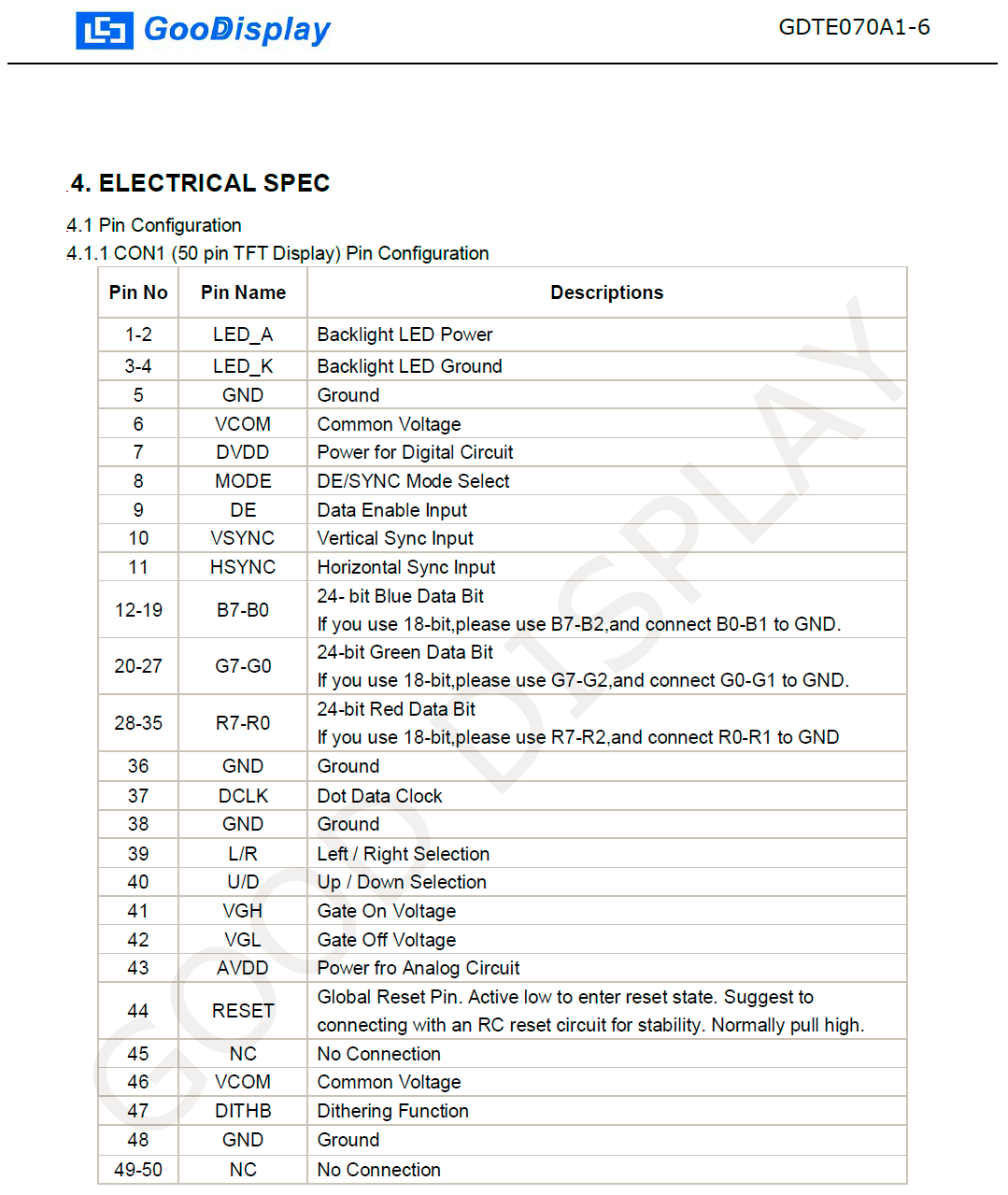7" displays with 800x480 and 1024x600 px resolution are not taller than 107 mm and are an elegant fit for HMI terminals as well as custom machinery and even 3U rack mounted servers and lab equipment. Their versatility and power efficiency hinges on the ease of interfacing with single board computers like Raspberry Pi (Zero).
Smaller displays (2.4 - 4") are available with SPI interface. Larger displays require higher bandwidth interfaces. Since MIPI DSI is not a friendly interface, LVDS and parallel interfaces are preferred.
Depending on the type of panel, additional voltage rails need to be provided and match the panel electrical characteristics. Shown below is the "DPI-Topper-666" board which can not directly be adapted to a 50 pin display without an active adapter. The "RGB LCD HAT" offered by Waveshare (which strictly speaking isn't a HAT due to lack of ID EEPROM) is pin compatible with GDTE070A1-6, but AVDD, VGH, VCOM and VGL look to be out of spec.
One can surely draw inspiration from the cost-effective choice of components and charge pump implementations. D1 (ZD 16V) however immediately suggests VGH will be low by > 2V.
To configure DPI on a Raspberry Pi, a setup.txt file needs to be created. The gory details are documented at:
https://www.raspberrypi.com/documentation/computers/raspberry-pi.html
It is here that one realizes that the GPIO mappings of 666 and 888 modes are shifted with respect to each other, disallowing a simple set of solder jumpers to free up the six GPIOs otherwide dedicated to MSBs:

A suitable PCB that allows both 6 bit and 8 bit data could provide an extra 50 pin header appropriately wired for 888 format.
Display Pinout and Electrical Characteristics
https://www.e-paper-display.com/GDTE070A1-6%20Datasheetee71.pdf


Display Adapters
https://www.waveshare.com/wiki/File:RGB-LCD-HAT-Schematic.pdf

https://github.com/othermod/DPI-Topper-666

Display Parallel Interface Setup
Some existing setups give a cursory idea:
https://github.com/othermod/DPI-Topper-666
https://github.com/waveshare/LCD-show/blob/master/LCD7-1024x600-show
https://github.com/goodtft/LCD-show/blob/master/DPI7_1024_600-show
https://github.com/goodtft/LCD-show/blob/master/LCD7C-show
Once again, one may need to refer to
https://www.raspberrypi.com/documentation/computers/raspberry-pi.html

(to be continued)
 helge
helge
Discussions
Become a Hackaday.io Member
Create an account to leave a comment. Already have an account? Log In.